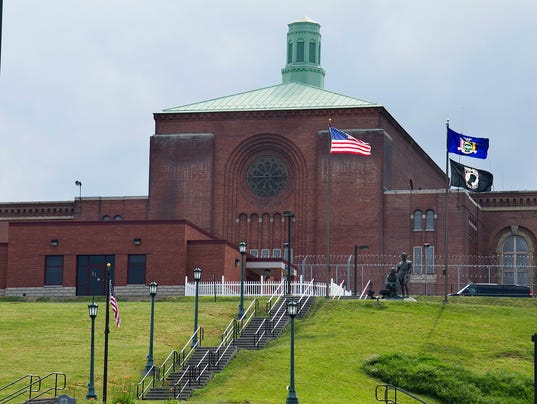NY to spend $7.3M on college-in-prison program
By Jon Campbell
ALBANY - New York will spend $7.3 million from bank settlements to expand college education programs in prisons, with Cornell University's existing program set to grow.
Seven colleges will begin, continue or expand offerings for prisoners at 17 correctional facilities across New York over the next five years as part of the College-in-Prison Re-Entry Program, a joint program between Gov. Andrew Cuomo's administration and Manhattan District Attorney Cyrus Vance.
Cuomo and Vance unveiled the colleges and prisons Monday.
Among them are Cornell, which will continue its program at four correctional facilities, including Elmira and Cayuga.
In all, there will be 400 to 500 new seats each year for college-education programs in state prisons, according to Cuomo's office.
"It has never been more evident that a college education is an important stepping stone to success and by partnering with District Attorney Vance, that success will reach those who never thought they could achieve it," Cuomo said in a statement.
Cuomo first proposed spending public dollars to provide prisoners a free college education in 2014, pointing to studies that show lower recidivism rates among inmates who receive an education.
He was immediately met with a wave of backlash from conservatives and college students, who questioned the state covering costs for inmates at a time when expenses were rising for non-inmate students.
Last year, Cuomo and Vance came up with a compromise: Vance's office provided more than $7 million recovered from settlements with large banks to fund a scaled-back program.
Some colleges -- including Cornell -- already offered college courses to prisoners, though those initiatives were privately funded. Statewide, about 1,000 prisoners currently take college-level courses, according to the state.
Along with Cornell, the other participating colleges in the state's program are Medaille College, Mercy College, Bard College, New York University, Mohawk Valley Community College and Jefferson Community College.
The state's program will only be open to prisoners with less than five years left on their sentence.
"We'll hopefully equip them with very important skills that will enrich their lives once they're on the outside and create a tool that will help them avoid returning to prison," said Robert Eap, academic director of Cornell's prison program.
Assemblyman Kieran Michael Lalor, R-Fishkill, Dutchess County, said he's supportive of offering higher-education courses to prisoners.
But Lalor said he would have preferred the prisoners have to pay back the cost of the courses over time, with the upfront costs of the loan covered by saving money through finding efficiencies in the prison system.
"I don't think it's a problem to have education in prison -- I think it's a good thing," Lalor said. "I just think we have limited resources."




